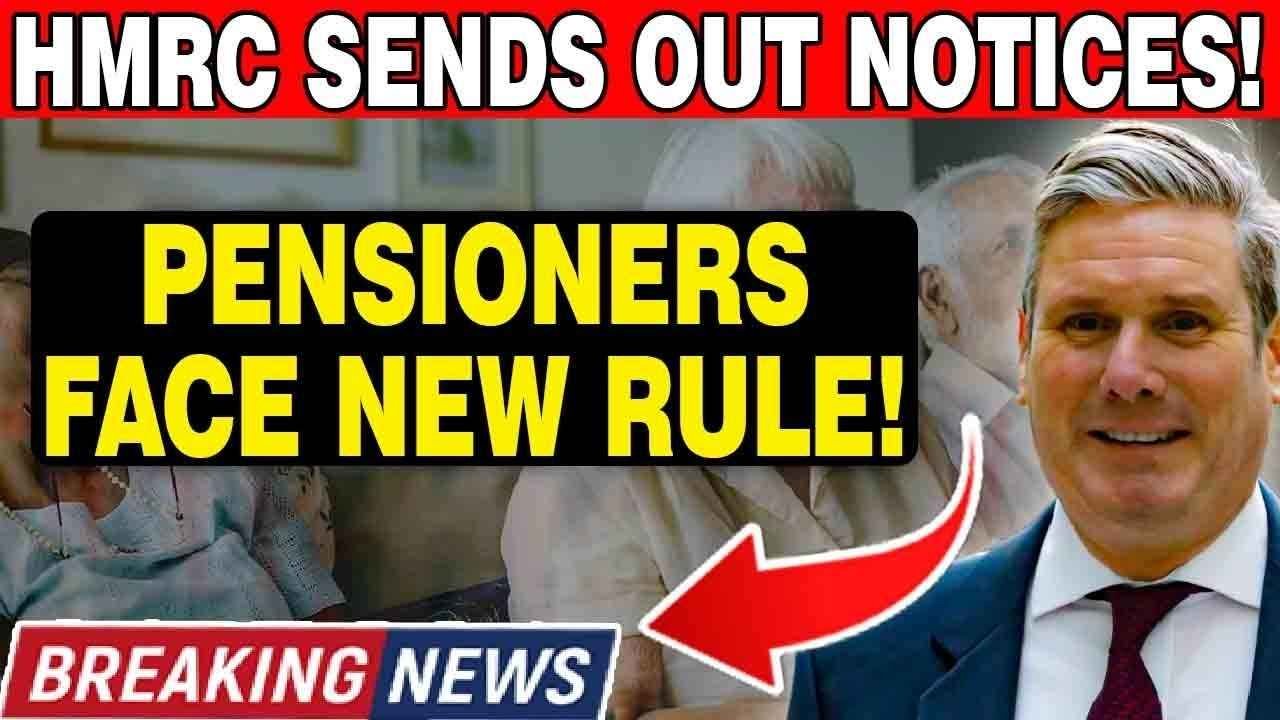Many UK pensioners enjoy a bit of extra cash tucked away in savings, but if you’ve got over £3,000, you might get a letter from HMRC this year. With interest rates up and new rules kicking in from April 2025, the taxman is keeping a closer eye on savings to make sure taxes and benefits are sorted right. This doesn’t mean everyone with savings will owe money, but it’s worth understanding why you might hear from HMRC and what to do about it. Let’s break it down in plain English, like chatting with a mate, so you can stay on top of things without stress.
Why Is HMRC Sending Letters to Pensioners?
HMRC now gets info straight from banks about how much interest your savings earn. If you’ve got over £3,000, even a small interest rate can push you over tax-free limits, especially with rates around 5% these days. They’re also tightening up on benefits like Pension Credit, which can be affected if your savings are too high. From April 2025, new rules mean stricter checks on savings for benefits, so HMRC might send you a notice to confirm your details or warn about tax on interest. It’s all part of their plan to make the system fairer and catch any mistakes early.
How Much Can You Earn Before Paying Tax?
Everyone gets a Personal Savings Allowance, which lets you earn some interest tax-free each year. If you’re a basic-rate taxpayer, earning less than £50,270, you can get £1,000 of interest without tax. Higher-rate taxpayers, earning over £50,270, get £500. If your savings earn more than this, you might owe tax. For example, £3,500 at 5% interest earns £175 a year, which is fine for most, but add more savings or accounts, and you could tip over the limit. Here’s a quick guide to the allowances:
| Tax Status | Tax-Free Interest Allowance |
|---|---|
| Basic Rate (<£50,270) | £1,000 |
| Higher Rate (>£50,270) | £500 |
| Additional Rate | £0 |
What Happens If You Get a Notice?
If HMRC sends you a letter, it might be a “Simple Assessment” showing interest earned, tax owed, or a check on benefits like Pension Credit. Don’t panic – it’s often just a heads-up. You might need to confirm your details or pay tax if your interest goes over your allowance. For pensioners, HMRC can adjust your tax code to take any tax straight from your pension, so you don’t have to mess about with forms. If you’re on benefits, savings over £10,000 can lower your Pension Credit, and over £16,000 might stop it altogether. Always read the letter carefully and reply by the deadline, usually 31 January.
How to Avoid Tax Trouble
There are easy ways to keep your savings tax-free. Cash ISAs let you save up to £20,000 a year, and all interest is tax-free, no questions asked. You can also spread savings across accounts to stay under your allowance or check if you qualify for the Starting Rate for Savings, which gives up to £5,000 tax-free if your total income is low. Keep records of your interest and check bank statements yearly. If you get a notice, you can reply online at gov.uk or call HMRC on 0300 200 3300 to sort it out quick.
What to Do Now to Stay Prepared
If you’ve got over £3,000 in savings, take a peek at your accounts to see how much interest you’re earning. Use an ISA if you can, as it’s the simplest way to dodge tax. If you’re claiming benefits, check how your savings affect them – gov.uk has a Pension Credit calculator to help. Don’t ignore HMRC letters; a quick response can save you hassle or penalties. With these new rules in 2025, staying clued up means you can keep more of your hard-earned cash for the things you love, like treating the grandkids or a nice day out.
